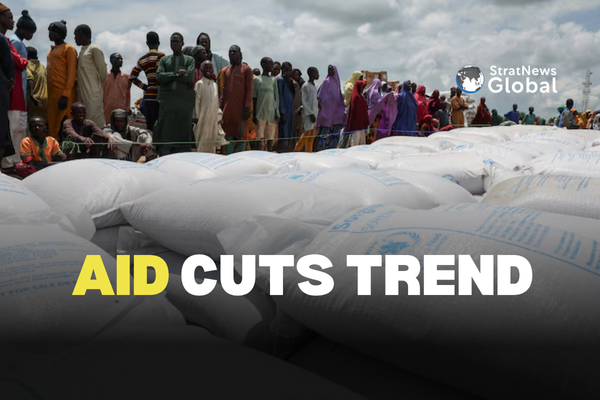Two dozen of the world’s wealthiest nations, including the United States and Japan, are reducing their commitment to global development, according to a new study published on Thursday. The report shows many countries are cutting aid budgets and diverting funds away from multilateral development institutions, marking a significant retreat from long-standing international pledges.
The Commitment to Development Index (CDI)—compiled by the Washington-based Center for Global Development (CGD) assesses 38 advanced economies using more than 100 data points. It measures how their policies impact developing nations across key areas such as finance, trade, migration, environment, health, security, and technology.
Decline in US Ranking as Aid Cuts Deepen
Sweden, Germany, Norway, and Finland retained their positions at the top of the 2024 ranking, reflecting their continued investment in global cooperation. The United Kingdom rose two spots to fifth place, though the data predates the government’s decision to slash its aid budget by 40%. Analysts expect that cut to push the UK down in future editions of the index.
The United States fell two places to 28th, a decline the CGD said does not yet account for the billions of dollars in aid reductions implemented under President Donald Trump. “The changes the Trump administration is making are very significant,” said Ian Mitchell, a senior policy fellow at CGD, warning that the US is likely to fall further in future rankings.
The trend reflects a broader shift among wealthy nations, many of which have redirected spending toward defence, energy security, and domestic economic concerns. Trump’s decision earlier this year to shutter USAID, the country’s main foreign aid agency, further underscores Washington’s withdrawal from traditional development priorities.
G20 Context and Global Implications
The release of the report comes just days before South Africa hosts the Group of 20 (G20) summit, where it will hand over its presidency to the United States. Trump will not attend the meeting the first G20 summit to take place in Africa amid growing criticism that Western powers are abandoning their leadership role in global development.
Despite the overall decline, the report highlighted a few positive signs. More than three-quarters of the countries studied reduced carbon emissions between 2019 and 2023, although rising emissions in China offset much of that progress. The index also noted modest improvements in migration policies, with more nations welcoming refugees and migrants.
However, the CGD warned that the broader global trend is regressive. “While some improved on migration or environment, overall the trend is backward with arms exports, trade barriers, and fossil fuel subsidies all rising,” the think tank said.
As rich nations prioritise national security and economic protectionism, the pullback in aid spending threatens to widen global inequality and stall progress toward international development goals.
(with inputs from Reuters)





